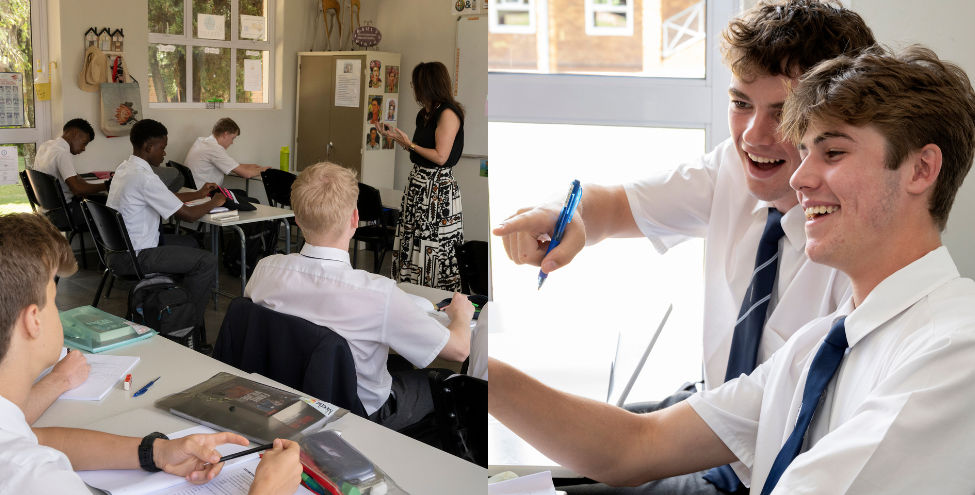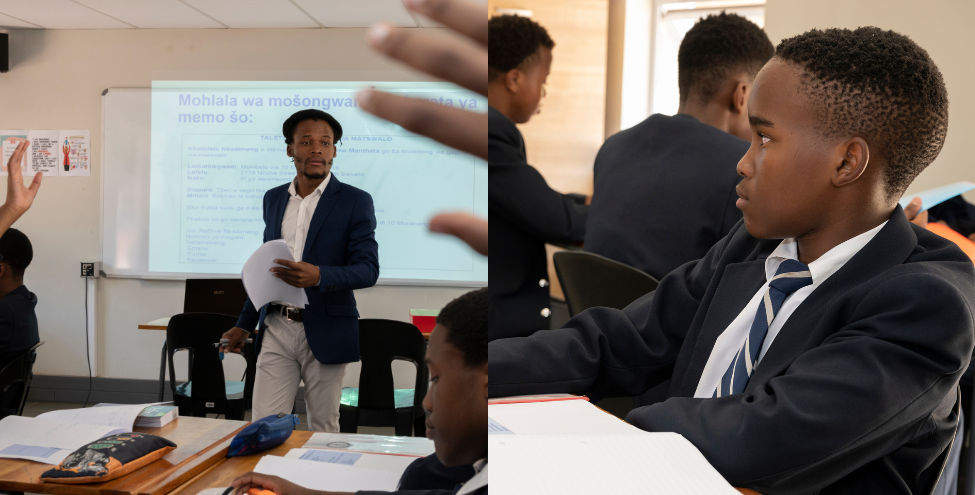J1184N Teacher Internship & Development Bursaries Project
South Africa, Africa
In partnership with St Alban’s College


The Situation
According to the World Bank, 30 March 2023, South Africa has taken considerable strides to improve the well-being of its citizens since its transition to democracy in the mid-1990s, but progress has stagnated in the last decade. The percentage of the population living below the upper-middle-income country poverty line reached approximately 60% in 2020. Structural challenges and weak growth have undermined progress towards reducing poverty, heightened by the COVID-19 pandemic. Progress in household welfare is severely constrained by rising unemployment reaching 35.3% in the fourth quarter of 2021. The unemployment rate is highest among youths aged between 15 and 24, at around 66.5%.
South Africa has one of the highest and most persistent inequality rates in the world, with a consumption expenditure Gini coefficient of 0.67 in 2018. High inequality is perpetuated by slow economic growth, which is not pro-poor and does not generate sufficient jobs. Inequality in wealth is even higher, and intergenerational economic mobility is low, meaning inequalities are passed down from generation to generation with only marginal change over time.
One of the ways in which we can address the reduction and relief of poverty and ensure the improvement of the economic outcomes of the country, is to implement relevant interventions and projects towards improving the education outcomes of poor communities across South Africa. This is one of the most critical development needs of the country. Many schools serving low-income communities have, despite several interventions from a variety of origins, failed to improve the quality of education they provide, leading to consistent poor outcomes to date. Learners from poor communities still experience problems with paying fees, a lack of books, deteriorating facilities, and a lack of professionally trained teachers.
Ideally, education resources should be increased and equalised across schools as many poor/disadvantaged communities still suffer from school infrastructure backlogs, low availability of learning materials in the form of textbooks, desks, computers, and connectivity as well as a high learner to teacher ratio (impractically large class sizes). Furthermore, the individual accountability and management capacity of schools should be strengthened, teacher training must be improved, while English should be introduced earlier to prepare learners to the switch to English as a language of instruction (Primary education uses home language and the country has 12 official languages).
Broadened access to good primary and secondary education needs to be supplemented with funding and opportunity to access quality tertiary education. Improvement in quality teacher recruitment, training that is supported by improved remuneration will assist towards improving education and socio-economic outcomes for poor and marginalised South African children.
Our Objectives
This project hosted by St Alban’s College, a prestigious and excellent private boys’ school aims to provide 9 paid internships to aspirant teachers in scarce subjects such as IT, Science, Mathematics and Accounting during the final year of study towards skilling them in excellent academic conditions so that they can make a difference in the ailing schooling system in South Africa. A teacher’s career typically spans up to 30 years and the sustainable impact will be in the hundreds of lives impacted by a quality teaching and subsequent improvement in their access to tertiary education and the economy. This can lead to a broadening of access to positive social mobility, less poverty and the improved outlook and quality of life associated with economic access.
The project hopes to be able to provide bursaries to at least 8 learners per annum over the next three years to enable them to enjoy an excellent education, a final year pass rate with access to tertiary studies and an improved economic outlook. These learners will be selected from a pool of applicants whose financial need would otherwise exclude them from attending a school such as St Alban’s College and we hope to enable them to break the cycle of poverty for their families and allow them to escape from the bitter cycle of intergenerational poverty.
Read more about St Alban’s College on www.stalbanscollege.com
J1184N

